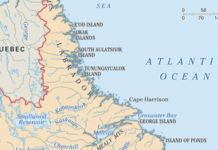Following a few hurdles, the Montana Public Service Commission (PSC) voted unanimously on Tuesday to approve the sale of electricity from New Colony Wind to Northwestern Energy under a 15-year power purchase agreement (PPA).
The 23 MW New Colony Wind project has been proposed near Martinsdale, Mont. The facility is expected to produce an average annual output of 76,181 MWh, enough electricity to power 6,900 homes. It is expected to come online at the end of 2018.
The Public Utilities Regulatory Policy Act (PURPA) requires utilities, such as NorthWestern Energy, to purchase power from small renewable energy projects – qualifying facilities (QFs) – at the price it would otherwise cost the utility to deliver equivalent amounts of power to serve customers either through its own generation or market purchases, the PSC explains.
New Colony entered into contract negotiations with NorthWestern in May 2017 when it tendered a PPA with the utility at a 25-year, fixed price of $43.63/MWh. NorthWestern disputed New Colony’s cost estimates, requiring mediation by the PSC.
The commission says it then set a price of $23.30/MWh for electricity produced by the wind farm, up from $13.96/MWh requested by NorthWestern. The PSC also reduced the contract from 25 to 15 years while eliminating a carbon price adder from the rates.
However, according to a local report from Billings Gazette, the developer of the project, Alberta-based TransAlta, has expressed concerns with the wind farm’s ability to proceed at this new PPA price. The story cites Stacy Hatch, spokesperson for TransAlta, who says, “These terms would make it extremely difficult, if not impossible, for any new QF projects to be constructed in the state of Montana.”
Meanwhile, the commission says it grappled with whether NorthWestern or project developers should bear responsibility for $5.4 million in interconnection- and transmission-related upgrade costs associated with the project.
The PSC cites Commissioner Roger Koopman, R-Bozeman, who has expressed frustration at the lack of credible cost data made available to him by NorthWestern on the subject:
“Generally, the commission works to assign financial responsibility for costs according to the demands each party imposes directly on the utility system,” he says. “I’m disappointed that NorthWestern’s failure to produce complete estimates of interconnection and transmission upgrade costs prevented the commission from doing that in this case.”
Under the agreement approved by the PSC, NorthWestern will pay the full cost of
interconnection- and transmission-related upgrades on its system, while New Colony will bear responsibility for interconnection costs between its wind farm and the interconnection with the grid. Developers will also be required to make an additional $2 million security deposit for upgrades to NorthWestern’s 100 kV transmission line between Two Dot and Martinsdale.
“The deposit prevents a situation in which NorthWestern incurs the expense to upgrade its transmission facilities only to have developers abandon the project in the early stages,” adds Chairman Brad Johnson, R-East Helena.
On the subject of regulation costs associated with managing the project’s intermittent generation, the PSC says it adopted NorthWestern’s cost estimates. However, commissioners signaled their intent to further review whether ratepayers or the utility should be responsible for substantial deviations between those estimates and actual future costs. The PSC claims NorthWestern has delayed a comprehensive study of regulation requirements despite the commission’s repeated direction to do so.




